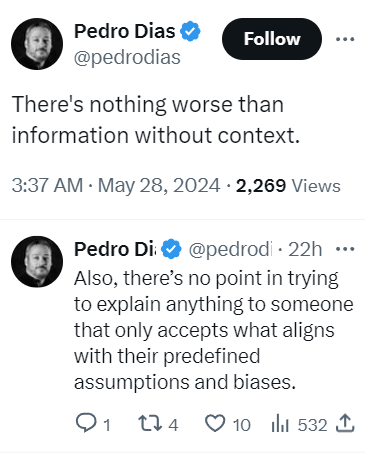

Last updated on

Many in the SEO community are reaching the consensus that the purported Google data leak lacks substance. It appears to be outdated by five years, devoid of any ranking algorithm insights, and fails to present anything groundbreaking. However, opinions within the SEO sphere vary widely, as is often the case.
Recent reports, such as the one from SEJ, suggest indications that this leak doesn’t align with typical patterns of a ranking algorithm data release, leaving numerous questions unanswered.
Our stance on the alleged leak remains cautious:
“At present, there’s insufficient evidence to confirm that this purportedly ‘leaked’ data originates from Google Search. It appears unrelated to the mechanisms governing website rankings on the platform.”
With ongoing developments, it’s becoming evident to many SEO experts that this information does not constitute a dump of algorithmic data.
While numerous individuals within the search community swiftly embraced the assertions of a data leak without hesitation, some advocates for factual accuracy urged for restraint and thoughtful consideration, emphasizing the importance of maintaining an open mind to all potential explanations.

Ryan Jones initially offered a cautious perspective, advising individuals in a tweet to approach the information objectively and without preconceived notions.
Former Google employee Pedro Dias also chimed in on Twitter, stating, “Have no issues with the shared data. And advising caution on the interpretation of some items.” He further clarified in a subsequent tweet why he couldn’t provide specific comments: “I can only speak for me. I think you understand why I can’t just correct specific items. What I’m saying is that context is needed and room should be given for interpretation.”
When someone remarked that Pedro’s response didn’t contribute much to the discussion, Pedro replied, “I didn’t say that. All I’ve been saying is please be careful jumping to conclusions. If you think that’s not helpful, than I’m sorry.”
Later, the ex-Googler tweeted about the significance of engaging in meaningful discussions.
“Let’s emphasize:
Search marketing expert Dean Cruddance tweeted, “There isn’t anything that gives away the secret sauce.”
In response, ex-Googler Pedro Dias concurred, stating, “100%. But the repercussions of this amplify unfounded speculations and oversimplified views on search, which is less than ideal. Ultimately, I believe it’s more harmful than helpful. Not due to the information it contains, but because of how it’s likely to be manipulated and misinterpreted.”
Throughout the day, an increasing number of SEO experts openly questioned the validity of the purported leak. Among them was Trevor Stolber, a seasoned search marketing veteran with two decades of experience, as evidenced by his LinkedIn profile. Stolber took to the platform to share his skepticism, stating that he wasn’t convinced.
On LinkedIn, he highlighted several points:
In the ongoing discussion, Kristine Schachinger, whom I can vouch for as a knowledgeable SEO professional, chimed in with valuable insight. She noted that upon reviewing the raw data, she found that all the information was dated back to 2019. According to her, the majority of the pages contained nothing of significance.
Furthermore, many participants in the discussion began to openly question the authenticity of the so-called leak. Consensus emerged that the leaked information offered nothing novel, prompting suggestions to redirect attention towards Google’s latest AI Overviews. This shift in focus was advocated because AI operates independently of traditional ranking factors.
In the realm of SEO, Brett Tabke stands out as a pivotal figure often referred to as the father of modern SEO. As the founder of PubCon, a prominent search marketing conference, and WebmasterWorld, the largest and most influential SEO forum in the early days of the industry, Tabke has left an indelible mark. Additionally, he is credited with coining the acronym “SERPs” for search engine results pages.
After dedicating five hours to scrutinizing the purported data leak, Tabke shared his insights on Facebook. His observations, summarized, included:
In response, Ash Nallawalla, an accomplished enterprise SEO professional with over two decades of experience, concurred, emphasizing that the leaked document essentially serves as an API reference rather than a revelation of algorithmic workings. Nallawalla suggested that at best, it offers insight into internal Google terminology.
The SEO community is gradually coming to terms with the realization that the recent data release didn’t live up to the expectations of being a leak of Google’s algorithmic secrets. Contrary to initial assumptions, it wasn’t even disclosed by someone within Google. Instead, it’s becoming increasingly apparent that the information contained within the release lacks novelty and relevance. Many are now aligning in the view that it serves more as a distraction than a revelation of significant algorithmic insights.
Original news from SearchEngineJournal